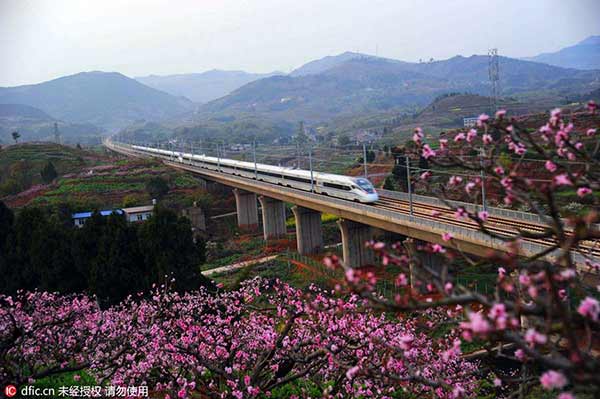

 |
|
A high-speed train runs on the Chengdu-Chongqing line in Chengdu, capital of Sichun province, on March 27, 2016.[Photo/IC] |
No sector better symbolizes China's shift from a nation of labor-intensive manufacturing to one that excels in sophisticated technology than high-speed rail.
Just a few years ago, high-speed rail was a new concept to the Chinese. Now, China boasts the world's biggest high-speed railway network. By the end of 2015, its total operating length had reached 19,000 km, accounting for more than half of that across the world.
After years of technological upgrades and innovation, China has lifted its high-speed railway technology to the most advanced level, which has the advantages of low cost, quick delivery and acknowledged reliability.
A lot of Chinese high-speed rail expertise and equipment has also been exported, generating huge economic efficiency in many parts of the world. For example, in Africa, China-built train lines are increasingly becoming the backbone of the local public transport system and a key component of growth in a number of countries, including Nigeria and Ethiopia.